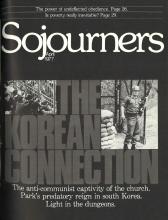As has been widely reported, President Carter filled all of his top ten international policy positions from a single private group, a foreign policy consortium called the Trilateral Commission. The Commission founded in 1973 by David Rockefeller and others to encourage the industrial societies to work together more effectively in guiding the world economy and in repelling or moderating the challenges of the poor nations. Preserving vested interest by such direct means is not novel.
What is surprising, however, is such an open admission that control of the international economic order debate is up for grabs. On the surface it would not appear so. The initial challenges issued by the poor nations for a New International Economic Order during 1974 and 1975 were not well grounded in data or theory. The West was able to turn aside or co-opt most issues despite the financial growth of the oil states. That round of debates ended with the surrender by Third World financial ministers (Western-trained) on the debt moratorium issue at the International Monetary Fund meeting in Manila last September.
To see why, one must first understand where the two sides have stood in public debate. Current American policy holds to the soundness of the existing economic system, a system in which rich and poor are said to have reciprocal interests. For the poor nations to progress, the West must remain prosperous. By proposed institutional additions such as the International Resources Bank, by facilitating technology transfer, and by trade, aid, and debt concessions to the poorest nations, former Secretary of State Kissinger implied that the present as North-South interdependence will produce a “foundation of security, fairness, and opportunity to all.”
Read the Full Article

